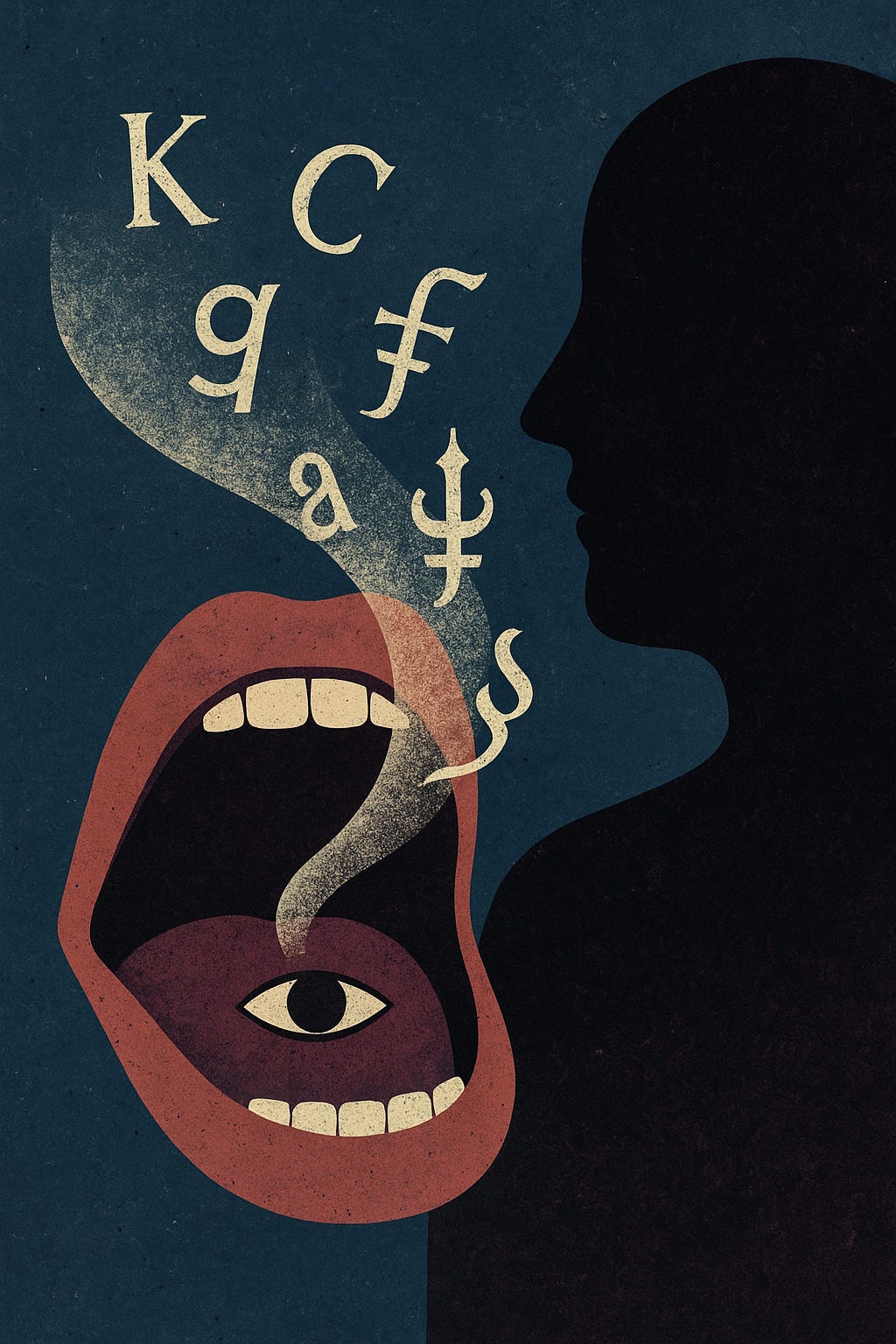The Ghost Languages Living in Your Mouth
Why do certain accents sneak out when I’m not expecting them — and who do they belong to?
There’s this thing that keeps happening.
I’ll be mid-sentence — relaxed, a little tipsy, maybe just tired — and suddenly a word comes out with this... Scottish lilt? And every time, I pause and say out loud, “Wait. WHY did that sound so Scottish?” No one else seems to notice.
Then there’s this weird little tongue flip I do — not quite an R, not quite a D. You know that thing where your tongue does something strange in the back of your mouth and you’re like, wait, how did I even do that? Or the breathy throat sound that sneaks into my H’s — like a very elegant throat clear.
And don’t even get me started on what happens when I’m in France — I fully lean into it. I’m sure people are rolling their eyes, but I’m out there like bonjourrrrghhh.
You don’t understand how many YouTube videos I’ve watched trying to learn to roll my R’s the Spanish way — just to pronounce colleagues’ and family members’ names correctly. I can’t do it. Maybe my mouth isn’t made for it.
But this other stuff? It just… happens.
My mom’s side is Scottish-Shetland (and apparently Norwegian, according to 23andMe). My dad’s side is Dutch. All languages with heavy tongue and throat shaping.
And now I’m starting to wonder — maybe my mouth knows something I don’t.
There’s actual science on this. Researchers have found that people exposed to a language as infants — even if they stop using it — still show different brain and muscle responses when hearing or mimicking its sounds. Phantom fluency. Covert retention. Speech motor memory. It’s a thing. 12
That the way I say "thirty" might be holding hands with my grandfather's voice, even though he died before I was born.
There are moments where a sound slips out that doesn’t feel modern. Doesn’t feel like English. It feels… older. Not in a poetic way. Literally older. Like a vowel that’s been waiting in my throat since 1961.
I’ll be brushing my teeth and realize I’m counting in Dutch. “Een, twee, drie, vier…”
I think my Oma and Opa taught me, but I don’t remember learning. It just comes out. Like… mouth memory?
Same in Norway. I don’t speak the language, but give me ten minutes in a coffee shop and I’m suddenly hitting soft L’s and sing-song rhythms like I was born in Bergen. It’s cool. And deeply embarrassing.
But I want to say this, too:
This isn’t just personal curiosity.
Lost language is a wound.
And for so many, it wasn’t just forgotten — it was violently taken.
From First Nations communities reclaiming Anishinaabemowin, Blackfoot, and Dene after generations of residential school erasure...
To Irish, Scottish Gaelic, and Welsh speakers whose voices were suppressed under British rule...
To Indigenous peoples worldwide — from the Māori of Aotearoa to the Sámi of the Nordic North — fighting to keep ancestral tongues alive...
To diaspora families who traded fluency for safety...
To those grieving Yiddish, Ladino, Mapudungun, Ainu — languages nearly lost to genocide or forced assimilation...
This isn’t neutral.
It’s layered with grief, shame, survival, and resilience.
I knew language could be taken.
I just didn’t know mine might be trying to come back.
I’m not sure what it’s saying yet.
But I’m listening.
—
What parts of you have been speaking this whole time — and you just didn't recognize the language?
Also worth googling: "phantom phoneme retention," "infant speech exposure," and "somatic speech memory." Fair warning… the rabbit hole is DEEP.
#thebluealgorithm #thefeelingslibrary #buriedtransmission #melissageurts
Werker, J. F., & Tees, R. C. (2005). Speech perception as a window for understanding plasticity and commitment in language systems of the brain. Developmental Psychobiology, 46(3), 233–251. https://doi.org/10.1002/dev.20060
Pierce, L. J., Klein, D., Chen, J. K., Delcenserie, A., & Genesee, F. (2014). Mapping the unconscious maintenance of a lost first language. Proceedings of the National Academy of Sciences, 111(48), 17314–17319. https://doi.org/10.1073/pnas.1409411111



